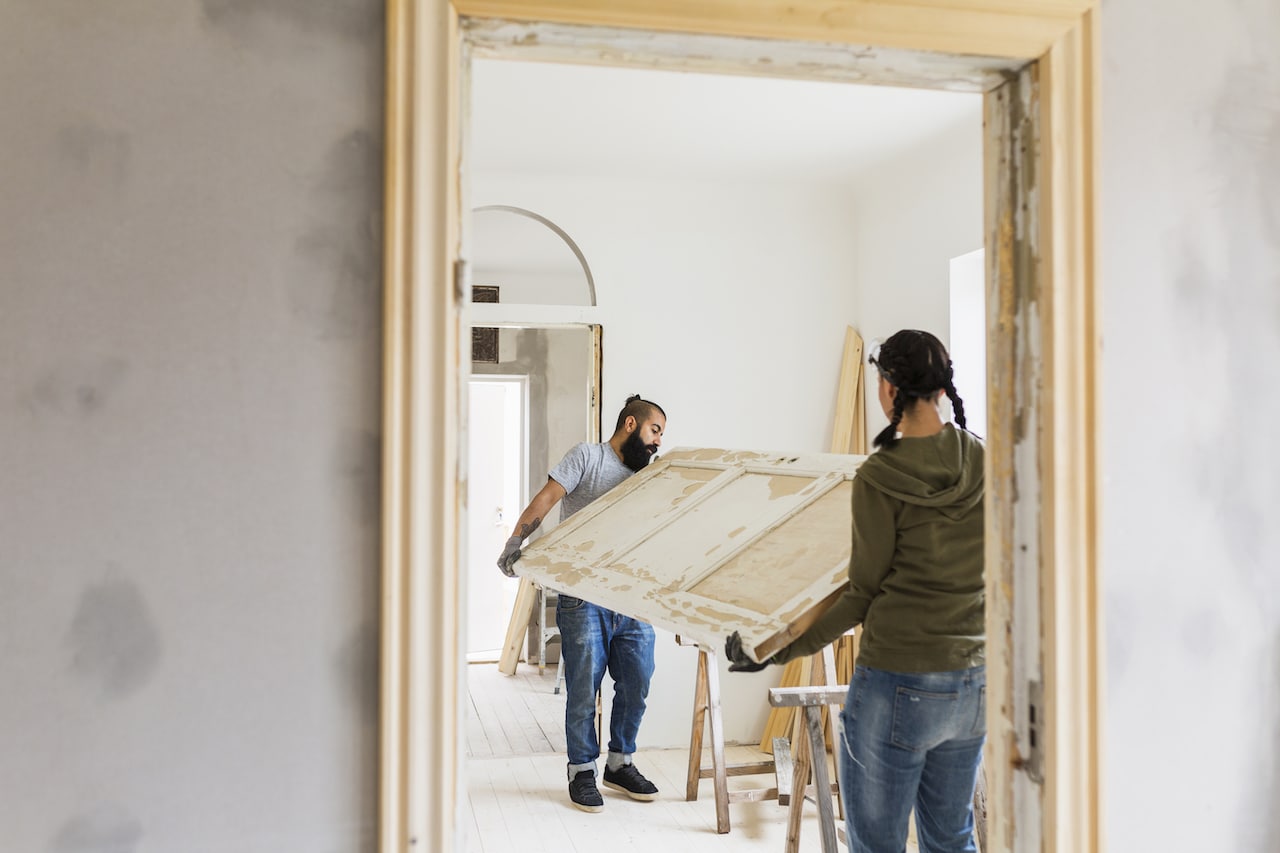As a homeowner, it’s natural to want to update and improve your living space. Whether you’re making small changes or tackling a major project, there are several factors to consider, including how renovations may affect the value of your home.
But did you know that renovating your home can also have an impact on your homeowners insurance? In this guide, we’ll discuss the importance of updating your home insurance when renovating and explore how different types of renovations can impact your policy.
The Impact of Renovations on Home Value and Insurance
Home renovations can significantly affect your home’s value—a factor that directly influences your insurance coverage needs. When you make upgrades or build extensions that increase the value of your home, outdated insurance coverage might not be enough to fully cover the increased cost of rebuilding or replacing your property, resulting in out-of-pocket expenses that could have been covered.
On the other hand, certain renovations that increase your home’s safety can potentially lower your insurance premiums. So whichever kind of renovation you’re working on, it’s crucial to inform your insurance company about any renovations to ensure you get updated coverage that accurately reflects the current value of your home.
Types of Renovations That Can Increase Home Insurance Rates
Most types of renovations that significantly increase the value of your home can also potentially increase your homeowners insurance rates—while that may sound like a bad thing, you don’t want to be caught underinsured in the event of a disaster! To be prepared, it’s a good idea to know how things might impact your home insurance when renovating, such as:
- Kitchen and Bathroom Renovations: Upgrading your kitchen or bathroom with high-end fixtures, appliances, and finishes can significantly increase the value of your home.
- Room Additions or Expansions: Adding additional living space to your home, whether it’s through an addition or converting an existing space, can also increase your home’s value.
- Swimming Pools: While a swimming pool can be a great addition to your home, it can also increase the risk of accidents and injuries on your property.
- Attics and Basements: Finishing or renovating an attic or basement can add usable living space to your home, making it more valuable.
Types of Renovations That Can Lower Home Insurance Rates
On the flip side, some changes can potentially lower your home insurance when renovating. You definitely want to take advantage of the potential savings on your premiums if you’re making these changes! These include:
- Roof Replacement or Repairs: A new roof can enhance the structural integrity of your home and reduce the risk of damage from severe weather or other events. As a result, you may qualify for lower insurance rates.
- Air Conditioning: Upgrading to a newer, more efficient air conditioning system can improve your home’s energy efficiency and potentially lower your homeowners insurance rates.
- Home Security System: Installing a home security system can help protect your home from theft and other risks, potentially reducing your insurance rates.
Policy Changes to Consider During Renovations
In addition to updating your coverage for changes in value, there are a few policy changes you may want to consider for your home insurance when renovating. These include:
- Increasing Liability Coverage Limits: Renovations can also increase the risk of accidents and injuries on your property while construction is ongoing. Consider temporarily increasing your liability coverage limits during renovations to provide additional protection in case of a claim.
- Increasing Liability Coverage Limits After Renovation: Certain renovations such as swimming pools increase the risk of accidents on your property even after the project is completed. To ensure you’re fully protected, consider increasing your liability coverage limits permanently.
- Increasing Coverage for Personal Possessions: If your renovation project involves replacing or upgrading expensive personal possessions, such as furniture or electronics, make sure to update your insurance coverage accordingly to ensure that you have enough coverage in case of loss or damage.
Ensure Your Contractor Is Insured
It’s not just your own insurance considerations that matter when undertaking a renovation project; it’s also important to ensure that your contractor carries adequate insurance coverage as well. Accidents can happen, and without proper insurance, you could be held financially responsible for any injuries or damages that occur on your property during the renovation.
Therefore, before hiring a contractor, ask for proof of insurance, which should include both liability and workers’ compensation coverage, giving you added protection and peace of mind.
Choose Bethany Insurance for Peace of Mind
Finally, it’s important to choose the right provider for home insurance when renovating your property. Bethany Insurance is a reputable and experienced provider that can provide you with personalized coverage options and guide you through the process of updating your policy during and after renovations.
Contact us today to learn more, and take the necessary steps to enjoy a worry-free home renovation experience!




